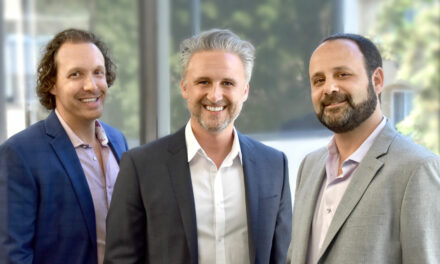CAMBRIDGE, Mass., April 26, 2017 /PRNewswire-USNewswire/ — The Lincoln Institute of Land Policy will lead the conversation on fiscal sustainability, equity, green infrastructure and its financing, and the challenges facing the New York metropolitan area among many other topics at the American Planning Association’s National Planning Conference in New York City May 6-9, 2017.
As cities large and small continue to struggle to make ends meet, the Lincoln Institute will hold a series of sessions entitled Fiscal Analysis, Municipal Finance, and the Economy, delving into the ways communities have rethought their financial base and are retooling to provide basic goods and services, plan for the future and escape a cycle of recurring crises. The series will include a kickoff session with Lincoln Institute President and CEO George “Mac” McCarthy and TischlerBise President L. Carson Bise from 10:45 to noon Saturday May 6 and a session on the financing of New York City’s multi-billion dollar Hudson Yards development with Lourdes Germán of the Lincoln Institute and William Glasgall of the Volcker Alliance (read Germán’s blog post on the subject) from 4 to 5:15 p.m. Sunday May 7, among many others.
As part of a partnership with APA and Harvard University’s Graduate School of Design that brings planning directors from the nation’s largest cities to the Lincoln Institute each year, Armando Carbonell, chair of the institute’s Department of Planning and Urban Form, will moderate a panel, Big City Planning Directors on Equitable Redevelopment and Food Access, which will examine the economic, planning, and equity issues facing St. Louis, Milwaukee and other cities. The session, from 2:45 to 4:00 p.m. Monday May 8, will include a discussion of redevelopment surrounding the nearly $2 billion National Geospatial-Intelligence Agency facility planned in St. Louis near the site of the former Pruitt-Igoe housing complex.
The Lincoln Institute’s recently published book Nature and Cities: The Ecological Imperative in Urban Design and Planning will also make its debut at the conference. Featuring essays by leading landscape architects, planners, and urban designers, the book calls for integration of nature more fully into cities as the world urbanizes and the effects of climate change grow more severe.
A complete list of the Lincoln Institute’s sessions at the conference follows (all sessions at the Javits Convention Center):
Fiscal Analysis, Municipal Finance, and the Economy, from 10:45 a.m. to noon Saturday May 6, kicking off the conference’s fiscal track with a discussion of the pillars of municipal fiscal health, why they are relevant to the planners, and how cities and towns can make better land use decisions, with George “Mac” McCarthy of the Lincoln Institute and L. Carson Bise of TischlerBise (Room 1E07).
Benchmarking and Municipal Fiscal Health, from 1 to 2:15 p.m. Saturday May 6, exploring ways planners can use the Fiscally Standardized Cities (FiSC) database to make meaningful budgetary comparisons across the largest 150 U.S., with Lincoln Institute Senior Research Analyst Adam Langley and Research Fellow Andrew Reschovsky, as well as Urban-Brookings Tax Policy Center Senior Fellow Tracy Gordon and Chicago Metropolitan Agency for Planning Deputy Executive Director for Planning Bob Dean (Room 1E08).
Infrastructure Public Finance 101, from 4 to 5:15 p.m. Saturday May 6, surveying the financial avenues available to cities to pay for critical projects and the relationships between finance, project planning, and capital project administration, with Lourdes Germán of the Lincoln Institute and Susan Kendall of FirstSouthwest/Hilltop Securities (Room 1E15).
Best Practices for Using Tax Incentives, from 1 to 2:15 p.m. Sunday May 7, detailing the costs and benefits of tax incentives, ways to make incentives more effective, the value of taking a regional approach, and alternative economic development strategies, with Edward Hill of Ohio State University, Daphne Kenyon of the Lincoln Institute, Greg LeRoy of Good Jobs First and Ronald Rakow of the City of Boston (Room E116).
Nature and Cities: Ecological Planning and Design, from 1 to 2:15 p.m. Sunday May 7, looking at how ecological understanding can help planners respond to urban challenges like climate change with a focus on resilient urban design, with Timothy Beatley of the University of Virginia, Charlottesville, Armando Carbonell of the Lincoln Institute, Nina-Marie Lister of Ryerson University, and Forster Ndubisi of Texas A&M University (Room 1E10).
Financing NYC’s Hudson Yards, from 4 to 5:15 p.m. Sunday May 7, examining how the city of New York used the value of land to finance the multi-billion-dollar Hudson Yards infrastructure project on the city’s Far West Side, with Lourdes Germán of the Lincoln Institute, and William Glasgall of the Volcker Alliance (Room 1A07).
Applying Big Data to Small Projects, from 4 to 5:15 p.m. Sunday May 7, highlighting projects in California and Virginia to show how to gather and deploy big data to help achieve planning and transportation goals, with Amy Cotter of the Lincoln Institute, Chris McCahill of the State Smart Transportation Initiative, Chris Pangilinan of TransitCenter, and Laura Schewel of StreetLight Data (Room 1A08).
Advancing Equity Analysis in Scenario Planning, from 7:30 to 8:45 a.m. Monday May 8, investigating how social equity concepts can be implemented in planning practice using innovative scenario planning tools, with Colbey Brown of the Manhan Group, LLC, Arnab Chakraborty of the University of Illinois at Urbana-Champaign, Robert Goodspeed of the University of Michigan, Ann Arbor, Jennifer Minner of Cornell University, Peter Pollock of the Lincoln Institute, Alex Steinberger of Fregonese Associates, and Bev Wilson of the University of Illinois at Urbana-Champaign (Room 1A10).
Big City Planning Directors on Equitable Redevelopment and Food Access, from 2:45 to 4:00 p.m. Monday May 8, confronting the economic, planning, and equity issues facing St. Louis, Milwaukee and other cities, with David Rouse of APA, Armando Carbonell of the Lincoln Institute, Vanessa Koster and Tim McCollow of the City of Milwaukee, Donald Roe of the City of St. Louis, Karen Shore of The Food Trust, and Toni Griffin of Urban Planning for the American City (Room 1E10).
Scenario Analysis for Urban Planners, from 2:45 to 4 p.m. Monday May 8, on how scenario planning can acknowledge the inherent uncertainty of the future, using case studies that incorporated a wide range of voices, with Arnab Chakraborty of the University of Illinois at Urbana-Champaign, Amy Cotter of the Lincoln Institute, Janae Futrell of the city of Atlanta, and Kenneth Snyder of PlaceMatters (Room 1E07).
Using the CIP to Make Plans Happen, from 4:15 to 5:30 p.m. Monday May 8, on how capital improvement plans can be used as vehicles to achieve planning goals, with Jean Gatza of the City of Boulder, Colorado, Julie Herlands of TischlerBise, and Peter Pollock of the Lincoln Institute (Room 1E09).
Fiscal Policy and Land Use Interaction, from 9:30 to 10:45 a.m. Tuesday May 9, looking at how fiscal policy decisions affect land use outcomes and vice versa, and how to promote cooperation between city planners and public finance experts, with Amy Cotter of the Lincoln Institute, Julie Herlands of TischlerBise, Michael Pagano of the University of Illinois at Chicago, and Andrew Reschovsky of the Lincoln Institute (Room 1A06).
Planning Directors’ Perspectives on the Region, from 9:30 to 10:45 a.m. Tuesday May 9, providing a forum for planning directors form the New York City region to share the results of an all-day retreat, with Purnima Kapur of New York City, Peter Pollock of the Lincoln Institute and a number of planning directors from throughout the region (Room 1A21).
Weighing the Future of Buyouts, from 9:30 to 10:45 a.m. Tuesday May 9, exploring the structure and function of buyout programs in flood-prone communities, and the improvements that can be made, with Robert Freudenberg of the Regional Plan Association and Deborah Hoffman of the County of Passaic, Totowa, New Jersey (Room 1E15).
Improving Fiscal Impacts Analysis, from 9:30 to 10:45 a.m. Tuesday May 9, taking a deep dive into traditional methods used in fiscal impact analysis, critiques of traditional fiscal impact analysis, and alternative methodologies, with Peter Angelides, Daniel Miles, and Steven Nelson of Econsult Solutions, Inc. and Sidney Wong of Community Data Analytics (Room 1E14).
The Lincoln Institute has been a longstanding partner with the American Planning Association’s National Planning Conference, which is in its 109th year.
The Lincoln Institute of Land Policy is an independent, nonpartisan organization whose mission is to help solve global economic, social, and environmental challenges to improve the quality of life through creative approaches to the use, taxation, and stewardship of land.




